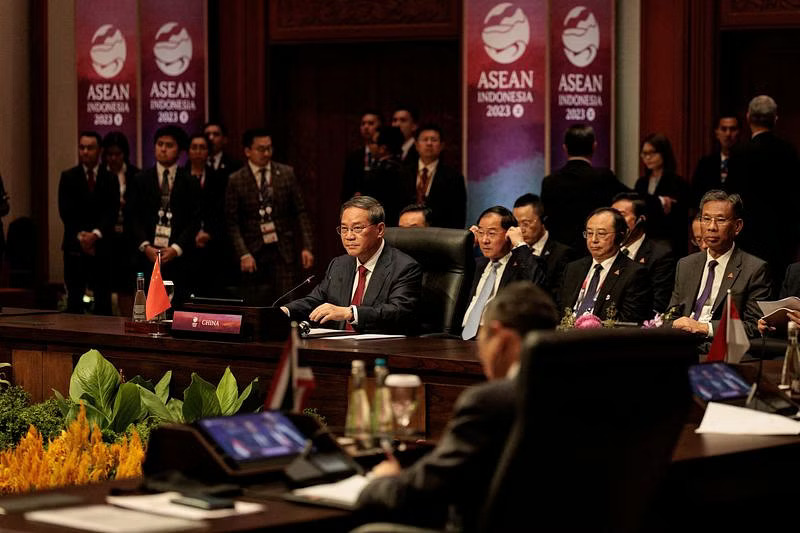Avoid a ‘New Cold War’, China Tells Nations at ASEAN Meet
Context
As top Asian and US officials met in Indonesia for talks, China’s Premier said on Wednesday that major countries must keep their disputes under control in order to avert a “new Cold War.”
What were the major concerns expressed by China in the ASEAN?
- Blocs Supported by the US: China is concerned about the establishment of regional alliances or blocs in its neighborhood that are considered to be supported by the US. These alliances could put China’s influence and security interests in the Asia-Pacific region at risk.
- Confrontation Avoidance: China seeks to avoid confrontations or conflicts with the United States or other big nations. It prefers diplomatic and discussion ways to managing and resolving conflicts over military or aggressive approaches.
- Opposition to a New Cold War: The term “new Cold War” reflects China’s great anxiety about the prospect of a lengthy and hostile relationship with the US. China wants to prevent a scenario similar to the Cold War, which had far-reaching global consequences.
- Disputes in the South China Sea: China is embroiled in a dispute with neighboring countries in the South China Sea over territorial claims and maritime rights. It is concerned about the engagement of external countries, particularly the United States, in these disputes, which it regards as meddling in its regional affairs.
Opposing Taking Sides:
- The Premier emphasizes the importance of great powers not taking sides in regional disputes or conflicts.
- This indicates China’s concern over the creation of alliances or coalitions with the US.
Opposition to Bloc Confrontation:
- Li Qiang urges for an end to bloc confrontation.
- This reflects China’s goal to avoid the formation of regional blocs or alliances that could isolate or oppose it.
The Role of ASEAN:
- The ASEAN-plus-three meeting allows major powers (China, Japan, South Korea, the United States, and Canada) to engage with ASEAN countries.
- These gatherings serve as forums for diplomacy and conversation, allowing regional issues to be addressed.
Key Leaders Attendance:
- US Vice President Kamala Harris is attending the summit, indicating the importance of the discussions.
- Premier Li Qiang is attending on behalf of President Xi Jinping, demonstrating how important these negotiations are to China.
Previous Chinese Declarations:
- The Premier’s remarks are consistent with previous statements by Chinese officials, such as Defense Minister Li Shangfu’s warning against NATO-style alliances in the Asia-Pacific area.
Geopolitical Concerns:
- China promotes inclusive cooperation over exclusive cliques or alliances.
- fears about the emerging geopolitical situation in the Asia-Pacific region.The remark expresses China’s fears about the encirclement or containment of its influence.
Diplomatic Approach:
- Overall, the statement reflects China’s diplomatic stance on regional cooperation and stability.
- In order to prevent a more combative situation in the region, it emphasizes the value of communication and peaceful dispute resolution.





